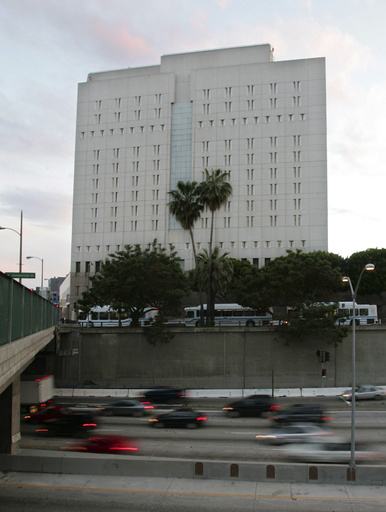NEW YORK — The administration of President Donald Trump has begun utilizing federal prisons as temporary holding facilities for individuals apprehended during its immigration enforcement efforts, according to the Bureau of Prisons. This marks a return to a controversial strategy seen during his initial term, which faced accusations of mistreatment and inadequate conditions.
In a statement, the Bureau of Prisons indicated that it is supporting U.S. Immigration and Customs Enforcement (ICE) by providing housing for detainees in alignment with the administration’s enforcement goals. However, the bureau did not disclose specific numbers regarding the immigration detainees it is accommodating or the exact prison locations involved.
Due to privacy, safety, and security considerations, the bureau refrained from commenting on the legal status of individuals or revealing the specifics of detainee assignment to various facilities. Reports suggest that federal jails in major cities such as Los Angeles, Miami, and Philadelphia are being utilized, with facilities in Atlanta, Leavenworth, Kansas, and Berlin, New Hampshire, also mentioned. The Miami facility alone is reportedly prepared to handle up to 500 detainees.
This increase in immigration detainees may aggravate existing issues within the Bureau of Prisons, already grappling with significant understaffing and incidents of violence. To address this situation, the agency plans to temporarily reassign personnel from other locations to assist with the influx of detainees.
The Bureau of Prisons, with over 30,000 staff members and 122 facilities, houses approximately 155,000 inmates and operates with an annual budget of around $8 billion. It previously announced plans to close one prison and suspend operations at six prison camps, citing critical challenges such as staffing shortages, deteriorating infrastructure, and budget constraints.
Instantly triggering discussions around the implications of these policies, Trump has expressed his intention to deport a large portion of the estimated 11.7 million undocumented residents in the U.S. Currently, ICE has the financial resources to detain roughly 41,000 individuals, though it has not specified how many beds it requires to meet its enforcement objectives.
Detainees are typically sent to various ICE processing centers, private detention facilities, or local jails that have contracts with ICE. In contrast, on Thursday, Homeland Security Secretary Kristi Noem announced the arrival of a second group of detainees at Guantanamo Bay Naval Base in Cuba. Immigrant advocacy groups have responded by demanding access to these detainees, having condemned the naval base as a “legal black hole.”
White House Press Secretary Karoline Leavitt revealed that over 8,000 individuals have been apprehended as part of immigration enforcement activities since Trump’s inauguration on January 20. Notably, 461 individuals were released for various reasons, including health issues and lack of room in detention facilities.
Recent statistics indicated that, from January 23 to January 31, ICE averaged 787 arrests per day, compared to an average of 311 arrests per day during the previous twelve months under the Biden administration. However, ICE has since ceased the release of daily arrest totals.
During Trump’s earlier term in 2018, the Bureau of Prisons reached an agreement to detain up to 1,600 immigrants in federal prisons across several states, including Arizona and Texas. Legal challenges arose when six immigrants held at Victorville federal prison in California alleged they faced “punitive and inhumane” treatment, including inadequate food and insufficient recreational time.
Additionally, last October, the American Civil Liberties Union initiated legal proceedings against the Bureau of Prisons and immigration authorities under the Freedom of Information Act for documentation regarding the use of federal prisons for immigration detention during Trump’s first term, with a court meeting scheduled for late February.
Reports have shed light on the Bureau of Prisons’ severe operational challenges, including rampant misconduct, incidents of sexual abuse, and chronic violence, compounded by inadequate staffing levels.
In an effort to provide solutions, El Salvador’s President Nayib Bukele recently proposed accepting U.S. immigration detainees in his country’s extensive prison system, even extending the offer to American citizens and legal residents. Bukele suggested that the U.S. could “outsource part of its prison system” for a nominal fee. Trump expressed interest in the proposal but acknowledged potential legal issues that may arise. “If we had a legal right to do it, I would do it in a heartbeat,” he said, highlighting ongoing discussions about the feasibility of such an approach.
